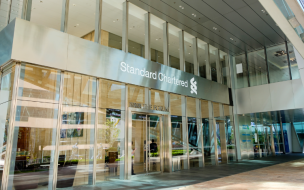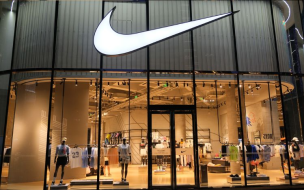The globalized nature of business and the growth of emerging markets have contributed to students’ demands that MBA education should not be siloed to individual nations.
Instead, these students are seeking programs that incorporate lengthy study trips abroad, international exchange programs and internships in foreign countries. It also partly explains business schools’ never-ending quests to further diversify their classes with as many nationalities and cultures as possible.
Employers value graduates with international exposure, and some MBA applicants feel that they need to immerse themselves in different cultures to secure job offers.
In the course of doing so, they are forcing business schools to adapt the decades-old model of delivering business education by moving beyond the idea of spending one or two years at a campus in one singular country.
Leonardo Banegas, an assistant manager at KPMG Singapore, is a Central American former retail banker of Citibank, the US-based financial services group. But, like most of his colleagues at the time, he decided against a traditional MBA program in favour of exploring education overseas.
“One of the key drivers that helped me to land the job was my international exposure – studying in France and Singapore,” says Leonardo, a graduate of France-based ESSEC Business School’s Global MBA.
“This is the most valuable thing – the opportunity to be with different cultures and understand the difference between economies, to perform business in those regions,” Leonardo says.
During the course of the Global MBA, students have the opportunity to spend nearly three months outside of France, with a term in Singapore and two separate immersions in foreign countries.
ESSEC is one of a legion of highly-ranked schools which have developed multi-location MBA programs.
“Candidates are not satisfied to attend an MBA in just one country,” says Anna Bacigalupi, an admissions manager at MIP Politecnico di Milano, the Italian business school.
Anna says that students now seek out programs which incorporate long exchange programs abroad. She adds that MIP offers a total of 20 different exchange options outside of Italy, lasting between one week and four months, as well as a dual degree with MIT, the US business school.
However she stops short of suggesting that initial location is no longer important to MBAs – a claim made by some business school insiders.
“The exchange programs are an added value to an MBA program. However it’s not the main reason why candidates apply for a specific MBA,” Anna says. “The first choice… Is where the initial location of the MBA [is].”
Still, business schools have had to adapt to meet the needs of an increasingly globalized business environment. Companies with international interests will value MBAs with this experience and training, says Claire Gaudissart, ESSEC’s career development manager.
“They offer particularly good employment opportunities to MBAs with global ambitions,” she adds.
This is a view shared by many other European schools. At INSEAD, candidates sign up in-part because they can study in two different regions, Europe and Asia, with the option of also spending time in the Middle East and the US, says Pejay Belland, director of admissions.
“The global business landscape is constantly evolving,” says Pejay. “For MBA students, an MBA is no longer just about grasping the fundamentals of business, but about developing deeper cross-border collaborations with people from diverse cultures,” she adds.
The business school boasts three fully-integrated campuses in France, Singapore and Abu Dhabi, giving MBAs the opportunity to “to travel the world”.
In a further sign of the increasing globalization of the business education market, many schools have dozens of exchange deals brokered with MBA providers on different continents. INSEAD has exchange partnerships with Wharton and Kellogg in the US, and CEIBS in China.
Multiple locations allow for more networking opportunities, exposure to different perspectives about the world economy, and adoption of different business practices.
“These are the experiences that an MBA student would miss if he [or] she chooses to remain in one location,” Pejay says.
According to QS, a site that gathers data on business school applicants, candidates are now willing to apply to a greater range of study destinations.
Fledgling MBA markets which have seen notable increases in demand, including Canada and Australia – and the rise of Germany – are beginning to mark their mark, while Asia is seen as a viable MBA location.
“Candidates are looking across the globe for their business education,” says Keegan Pierce, associate director of international admissions at ESADE Business School.
Established markets such as France, which QS says 25% of all applicants now choose as a potential destination, have had to develop a global perspective.
Grenoble École de Management offers exchanges with a mighty 125 international partners in 34 countries, according to Mark Thomas, associate dean for international affairs.
“Nothing is as powerful as first-hand experience,” says Mark.
But he says that due to time constraints, such international exchanges are usually shorter-term programs with company visits limited to selected partners.
Mark adds that students are drawn to these shorter international trips: “Time is of an essence during the MBA.”
In the US, where MBA programs are typically two years in length – a year longer than European programs – there is potentially more room for international immersion. Many US MBAs spend their summer break working internships in foreign countries.
America’s Tuck School of Business this month announced a new requirement for every student to complete a global immersion as part of their MBA. Each course will feature an immersive experience in a “country that is new to the student”.
“The world has become much more global,” says Phillip C. Stocken, associate dean for the Tuck MBA. “We believe our graduates must have a global business capability… To successfully navigate the different cultures, countries, and markets in which they will inevitably work.”
North Carolina-based Fuqua School of Business offers a two month international experience for their students to study at Grenoble in south-eastern France.
“This is undoubtedly an added bonus to the program, though the reputation of the business school is still very much [a] key issue,” says Mark.
This international experience provides a boost to students’ CVs, “through their willingness to learn about foreign business markets and [to] explore different cultures,” says Pejay. It also broadens their personal network and allows them the time to embrace different points of view, she adds.
It is a sentiment echoed by Phil Eyre, director of Grenoble's MBA program, who thinks that such experiences can be useful for subsequent MBA job applications.
Phil says: “It is precisely such skills that are increasingly required by global companies [which are] competing in a rapidly changing environment. Graduates that have had experience in other cultures have a greater ability to develop their careers more quickly.”
For some MBA applicants, location is the most important consideration when choosing a business school to apply to. But INSEAD thinks that initial choice location “no longer matters” because multiple locations allow for many networking opportunities, and exposure to different perspectives.
Mark, however, remains defiant: “Most companies will consider first and foremost the issuing university on the MBA degree. The time spent in the other institutions will then be seen [as] an addition that adds to their professional skill-set.”
RECAPTHA :
de
e5
dd
06








